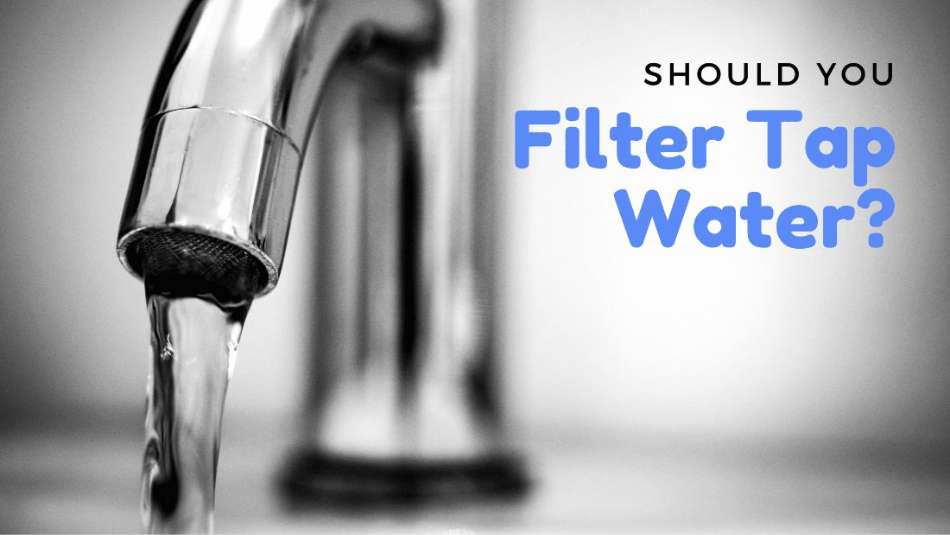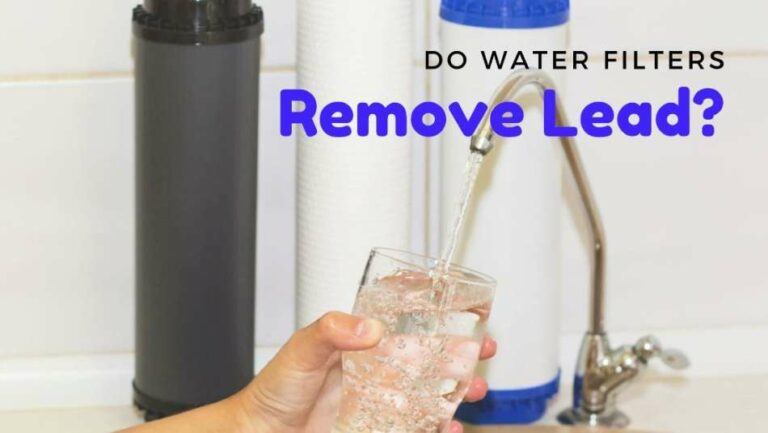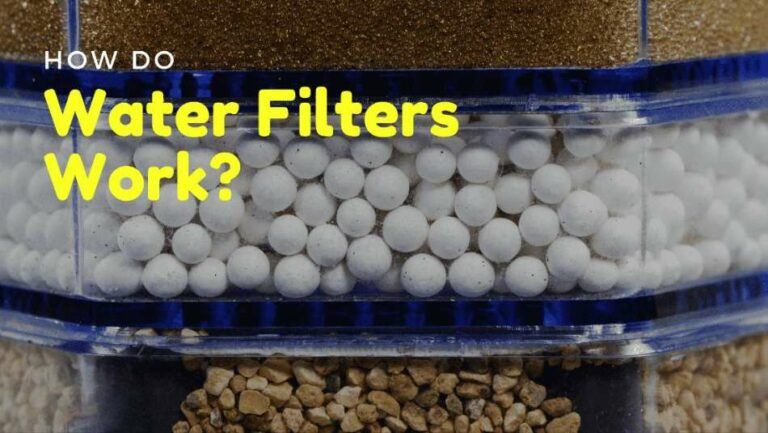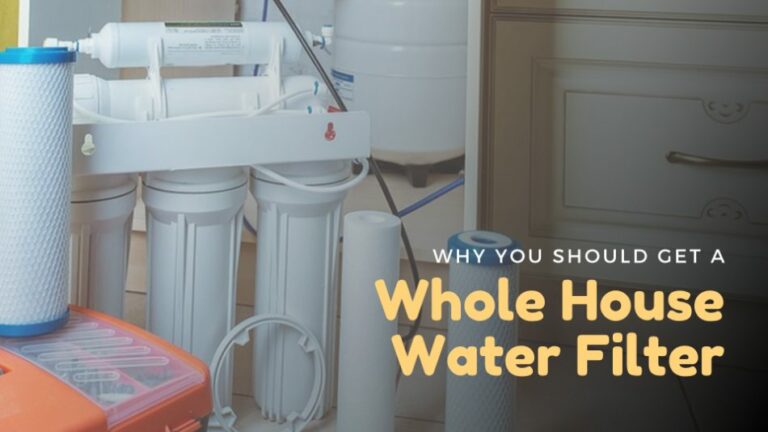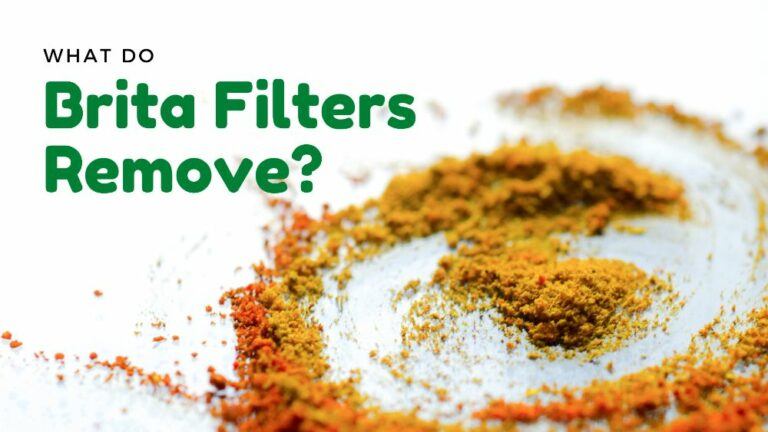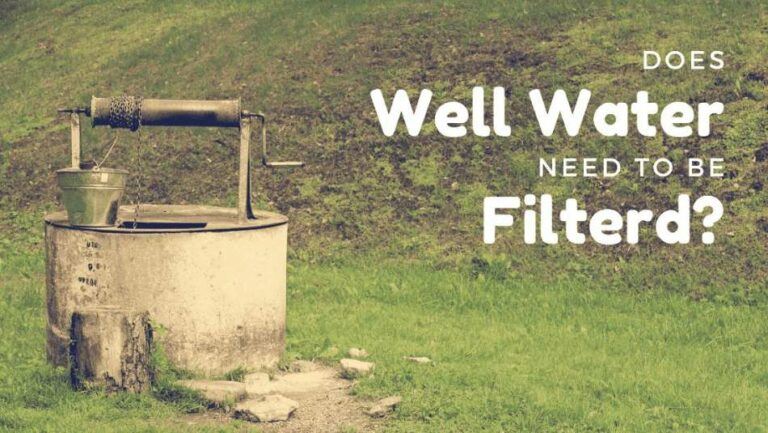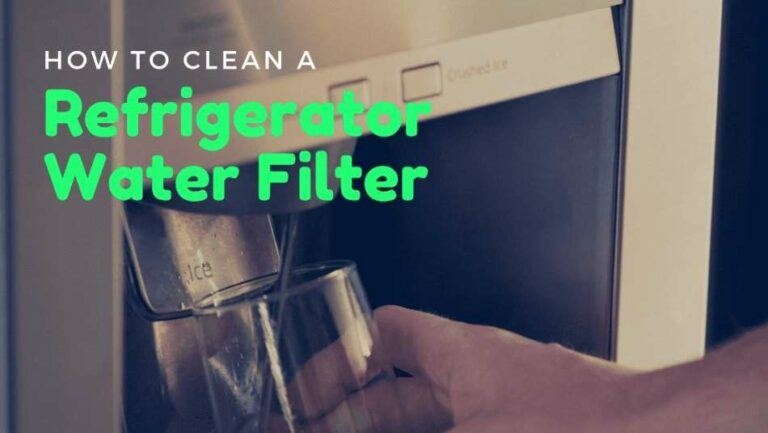Should You Filter Tap Water?
If you’re drinking tap water and want to make sure it’s safe for you and your family, this article is for you.
Since water is as essential as oxygen to our existence and we consume abundant quantities of it, we need to know what it contains and how its contents affect our health.
The tap water that you use at home goes through many stages of purification, but in the end it’s still not very pure. It’s true that many harmful substances are removed, but many more are introduced through the disinfectants that are added and the pipes that carry the water to your home.
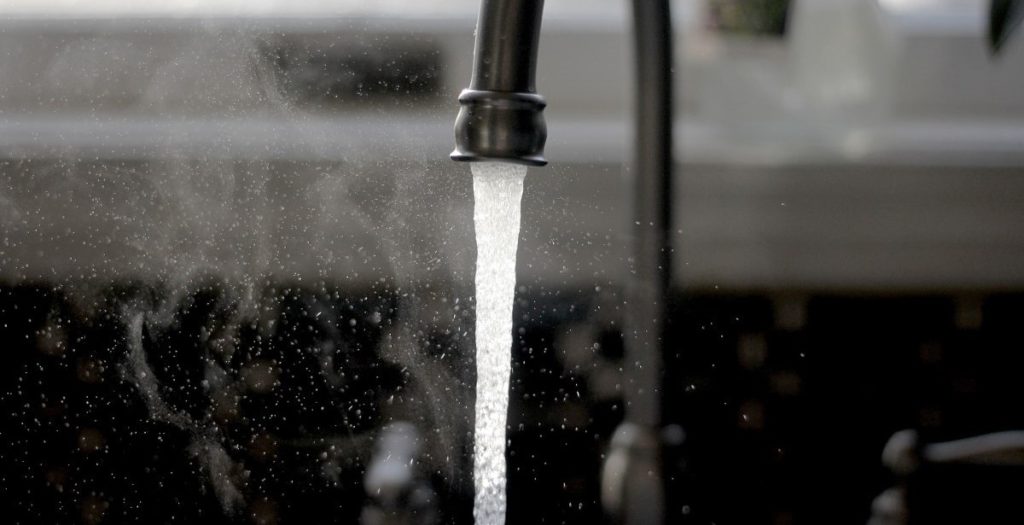
Should You Filter Tap Water?
Yes, you should filter tap water. Although tap water is purified before reaching your home, it can still contain chlorine, lead, fluoride, pesticides, and trihalomethanes. These elements have dangerous side affects, so it’s important to filter them out.
Let’s put on our lab coats and take a closer look at the elements you’re drinking along with your tap water.
Chlorine
Chlorine is a strong disinfectant. It’s mainly used to cleanse the water of pathogens that cause diseases. This process is called chlorination and has been used since 1744.
The official word is that the amount of chlorine in tap water is minimal and harmless. The real situation, on the other hand, is quite different. Chlorine can damage your liver and is a potential carcinogen.
It also increases the risk of respiratory problems, especially in children.
Lead
Pipes are the main source of lead found in tap water. Whether your city has ancient pipes or new pipes, both types contaminate water with lead.
When lead enters a body, it causes neurological and physical problems, hypertension and heart disease. It’s a dangerous substance to have in your drinking water.
Fluoride
I’m sure you’ve heard of the conspiracy theory that fluoride is added to water by governments to make their people more controllable. Governments are saying that they add it to decrease tooth cavities. Whatever the real reason is, drinking fluoride saturated water isn’t good for you.
High doses of fluoride can actually cause dental and skeletal problems. Quite a few thyroid and neurological diseases are also linked to consuming fluoride.
Pesticides
Pesticides and weed killers are introduced to water through lands that have been heavily treated. Water usually contains trace levels of pesticides that don’t cause an immediate health risk.
The real problem that pesticides cause is chronic diseases. The disease depends on the kind of pesticide present in the water. Pesticides could cause cancer, skin and eye irritation or affect the nervous system.
Trihalomethanes
They’re poisonous compounds formed when chlorine reacts with organic chemicals. These compounds are carcinogenic. They can cause heart, kidney, lung and central nervous system damage.
Trihalomethanes can also result in reproductive problems, like miscarriages.
Should You Filter Drinking Tap Water Only?
I know I’ve bombarded you with a lot of bad news about your tap water. Don’t worry, all hope is not lost. All these harmful substances can be removed by water filters.
Water filters help clean your tap water by removing contaminants and making your water look and taste good. Some people just filter their drinking water, others go for whole-house filtration systems.
Let me tell you that if you have the budget for it, go for the whole-house filtration option. Although filtering your tap water is going to make the water that you consume safer, it’s still quite dangerous to be using contaminated tap water for other things.
Bathing, washing clothes, watering edible plants, the list goes on.
How to Filter Your Tap Water?
There are several types of water filters, each capable of removing different contaminants.
I recommend going for either carbon filters or reverse osmosis filters. Carbon filters can remove chlorine, lead, mercury and other harmful chemicals from your water. They can’t, however, remove inorganic substances like arsenic and fluoride.
Reverse osmosis filters are capable of removing more contaminants than carbon filters, except for chlorine.
There are also portable filters that you could use if you’re traveling, like pitcher filters. The investment you make in a portable filter is going to save you all the money you would’ve otherwise spent on bottled water.
I don’t know about you, but I’m pretty convinced that the healthier thing to do is to filter tap water. If you’re thinking you could just replace tap water with bottled water, you’re not going to be doing your health or the environment a favor.
The bottled water industry is generally not very well regulated. Which simply means that you might be drinking more pollutants with bottled water than with tap water.
Also, bottled water is one of the main sources of plastic, which means you’ll be paying more money to drink unclean water and destroy the environment.
Do the smart thing and invest in a good water filtration system or just a water filter for your tap, and save yourself unnecessary medical problems and bills.

